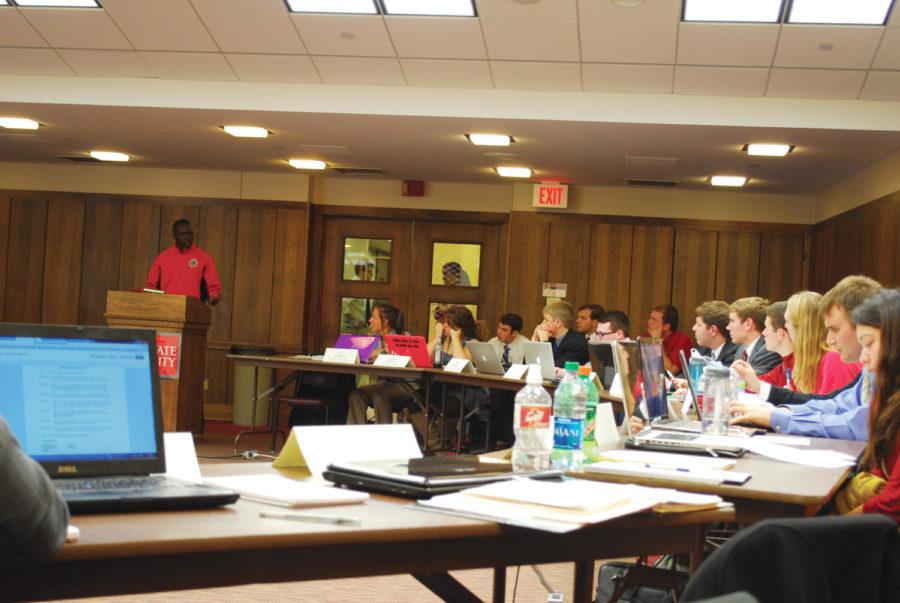GSB proposes forming student-faculty member committee
Photo: Jack Heintz/Iowa State Daily
Joseph Mawien, junior in interdisciplinary studies, accepts a position in the Government of the Student Body on Wednesday, Oct. 17. He was added immediately and began voting on issues.
October 23, 2012
The Government of Student Body has proposed the idea of a student-faculty member committee to help further the effectiveness of undergraduate education. The proposal is in the very early stages, but many components are being considered.
With more than 1,700 faculty members at Iowa State, evaluating how each of them teaches is a difficult task. The idea of the student-faculty board is to bridge the gap between student and faculty communication.
Suzanne Hendrich, Faculty Senate president, said: “The students want to have input in how to best use student course evaluations. They have been concerned that they never get any feedback directly as to how their information was used. What did the faculty member do with that information? How does it affect the next time they teach the course?”
The goal of the committee will be to create better processes to help students know their course evaluation data is being used and making sure faculty members stick to their syllabuses. Another element of the group will be focused towards the differences in learning different topics.
“Learning how to write well and learning how to be an engineer are very different,” Hendrich said. “There are different approaches to how the faculty member helps a student to learn whatever they need to learn, depending on the area of study,” Hendrich said.
Iowa State’s faculty members contemplate on how to improve their teaching skills often. They are interested in improving student education just as much as students are. The professor is an expert in what he or she is teaching. Most of the students enter as amateurs. Professors need to think about what it takes for the students to become experts, meaning they must think all the way back to when they were students themselves.
“I could have all the expert knowledge in the world, but that’s not the point,” Hendrich said. “What is, though, is what the student is gaining from the education experience. [We think about] how to get the student’s mind engaged.”
Since the plan is in the premature stage, the process of how to determine which faculty members and which students serve on the board is yet to be determined. Hendrich implied the Center for Excellence in Learning and Teaching will play a large part in the decision making.
Aside from helping teachers help students, the board is also designed to give students a better idea of how the faculty sets standards. If a philosophy professor changes the syllabus suddenly, the goal behind the impromptu adjustment might be to force the student to be a more flexible thinker.
Hopefully in full swing next semester, Hendrich is excited to see what is next.
“What’s the best way to represent the breadth of interests in how to continually improve education? I think that there are quite a few faculty members who think about it a lot. It will be quite interesting to engage more of a partnership.”










